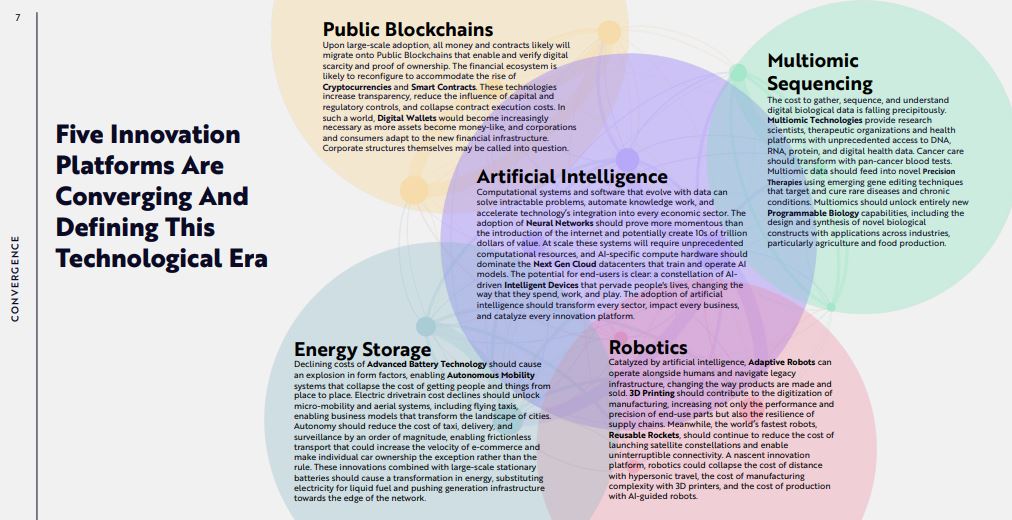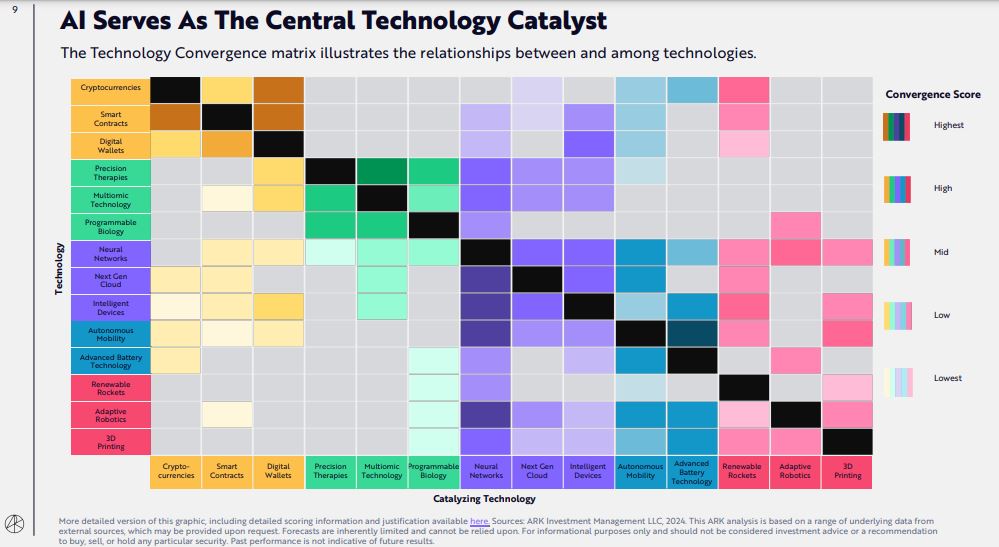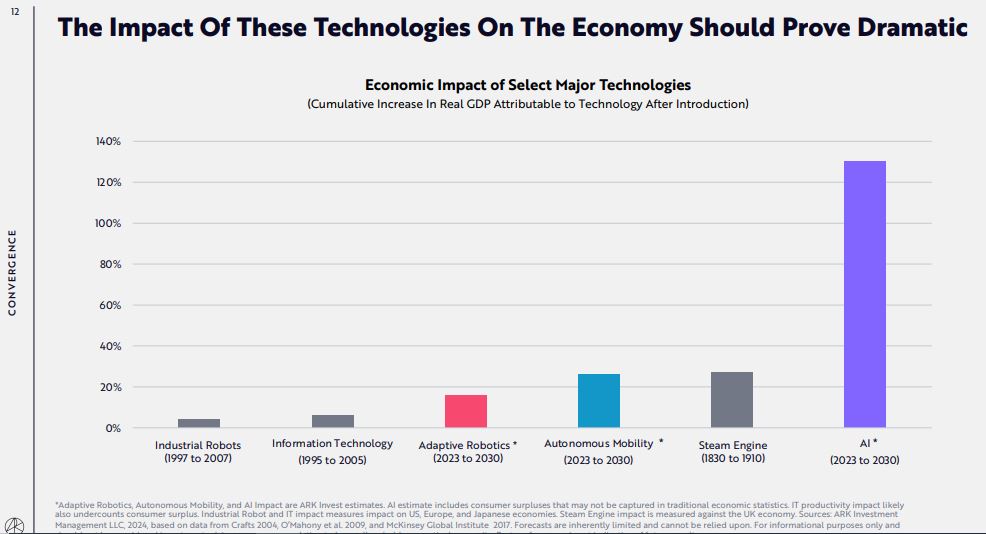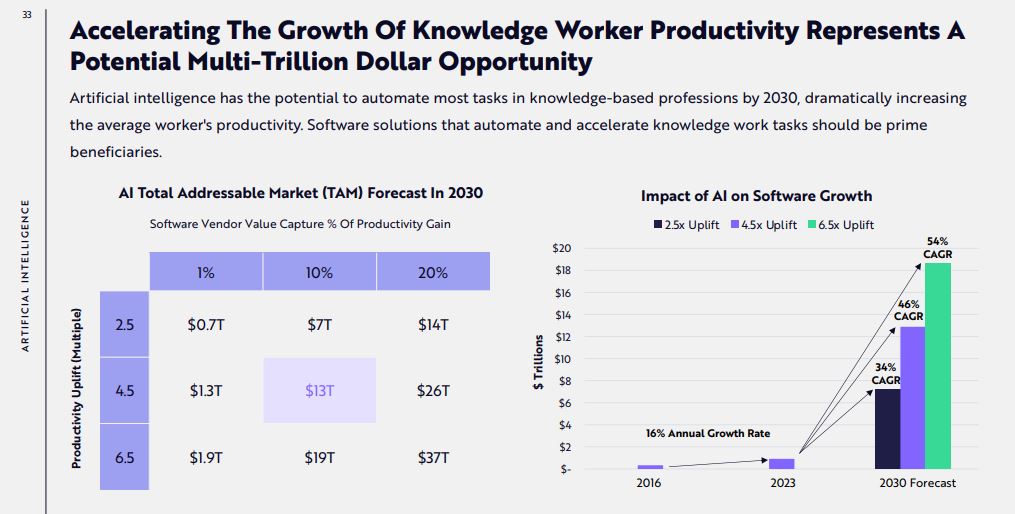A report by ARK Invest, an investment management firm specializing in disruptive innovation, predicts that further tech-led transformations are on the horizon, with artificial intelligence (AI) poised to spearhead this change.
“We’re all about finding the next big thing. Those hewing to the benchmarks, which are backwards looking, are not about the future. They are about what has worked. We’re all about what is going to work,” says Cathie Wood, founder, CEO, and chief investment officer of ARK.
Each year, ARK publishes its Big Ideas report, offering a thorough analysis of technological convergence and its capacity to transform industries and economies.
The ARK Big Ideas 2024 report, titled ‘Disrupting the Norm, Defining the Future,’ showcases 15 ground-breaking concepts poised to redefine industries and shape the future.

In the 2024 Big Ideas report by ARK, five innovation platforms emerge as defining pillars of the technological era: AI, public blockchains, energy storage, robotics, and multiomic sequencing. ARK also delves into the historical significance of converging technologies and estimates their economic impacts.
The company pinpoints AI as the primary catalyst for technological advancements. Let’s delve deeper into the AI chapter of the 2024 Big Ideas report.

AI: Redefining Work
Research indicates that coding assistants represent early success stories, significantly enhancing the productivity and job satisfaction of software developers. AI-powered assistants are not only improving the performance of knowledge workers but also proving to be particularly beneficial for underperforming workers, offering noteworthy advantages compared to high performers.

Advancements in foundational models are reshaping various domains. With expanded training datasets and increased parameters, GPT-4 demonstrates superior performance over GPT-3.5. These foundational models are evolving into “multimodal” platforms, accommodating text, images, audio, and video, offering enhanced user experiences and performance. The analysis says the cost of authoring the written word has collapsed:
The performance of AI training is rapidly advancing, with training costs expected to decrease by 75% annually. Recent research indicates a shift from optimizing large language model (LLM) training costs to prioritizing inference costs. Remarkably, inference costs, particularly for enterprise-scale use cases, are plummeting at an accelerated rate of approximately 86% annually, surpassing the decline in training costs. Notably, the inference costs associated with GPT-4 Turbo are now lower than those of GPT-3 a year ago.

Research indicates that the accelerated adoption of AI could yield a multi-trillion dollar impact on employee productivity. By 2030, AI holds the potential to automate the majority of tasks in knowledge-based professions, significantly enhancing the productivity of the average worker. As a result, software solutions designed to automate and expedite knowledge work tasks stand to be among the primary beneficiaries of this transformative shift.























